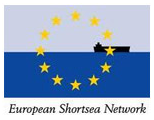The Green Paper

Towards a Future Maritime Policy for The Union, A European Vision for the Oceans and Seas
The Aim
This Green Paper aims to launch a debate about a future Maritime Policy for the EU that treats the oceans and seas in a holistic way. It will underline that our continued enjoyment of the benefits that they provide will only be possible through a profound respect for them at a time when their resources are threatened by severe pressures and our increasing technological ability to exploit them. The accelerated reduction of marine biodiversity due notably to pollution, impacts of climate change and overfishing are warning signals that we cannot ignore. The Green Paper builds upon existing EU policies and initiatives and dovetails with the Lisbon Strategy. It seeks to strike the right balance between the economic, social and environmental dimensions of sustainable development.
The Green Paper also hopes to contribute to a new awareness among Europeans of the greatness of their maritime heritage, the importance of the oceans in their lives and their continued potential to provide us with increased wellbeing and economic opportunity.
The Way Forward
The Way Forward
Principles of good governance suggest the need for a European maritime policy that embraces all aspects of the oceans and seas. This policy should be integrated, intersectoral and multidisciplinary, and not a mere collection of vertical sectoral policies. It should look at the oceans and seas based on sound knowledge of how they work and how the sustainability of their environment and ecosystems may be preserved. It should aim to provide answers as to how decisionmaking and the conciliation of competing interests in marine and coastal areas can result in a climate more conducive to investment and to the development of sustainable economic activities. To achieve this, it is necessary to increase cooperation and to promote effective coordination and integration of ocean and sea-related policies at all levels.
In its Transport White Paper of September 2001, the Commission proposed the development of “Motorways of the Sea” as a “real competitive alternative to land transport.” To help these lines develop, the White Paper states that European funds should be made available. These "motorways of the sea" should be part of the Trans-European network (TEN-T).
a. freight flow concentration on sea-based logistical routes;
b. increasing cohesion;
c. reducing road congestion through modal shift.
Our Shortsea Promotion Center is a member of European Shortsea Network
